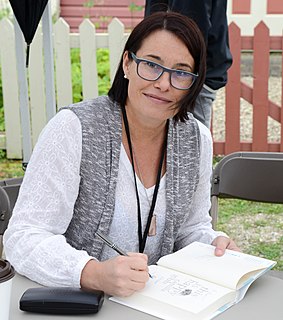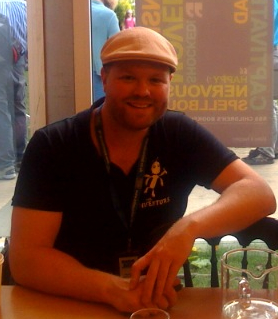A Quote by Charles Lamb
I like you and your book, ingenious Hone! In whose capacious all-embracing leaves The very marrow of tradition 's shown; And all that history, much that fiction weaves.
Related Quotes
Once you step inside, history has to be rewritten to include you. A fiction develops a story that weaves you into the social fabric, giving you roots and a local identity. You are assimilated, and in erasing your differences and making you one of their own, the community can maintain belief in its wholeness and purity. After two or three generations, nobody remembers the story is fiction. It has become fact. And this is how history is made.
True to their history, the English are very domineering and have manipulated it in different ways. I wouldn't say that there was an original, but there is a lot of expurgation in some of the Victorian translations, and there's a lot of additional salacious nonsense in some of them, too. I also like the early French one, much-derided for being fanciful but which is actually very elegantly done. It's very big, very capacious.
I don’t know much about history, and I wouldn’t give a nickel for all the history in the world. It means nothing to me. History is more or less bunk. It's tradition. We don't want tradition. We want to live in the present and the only history that is worth a tinker's damn is the history we make today.
The earth is not a mere fragment of dead history, stratum upon stratum like the leaves of a book, to be studied by geologists and antiquaries chiefly, but living poetry like the leaves of a tree, which precede flowers and fruit ~ not a fossil earth, but a living earth; compared with whose great central life all animal and vegetable life is merely parasitic. Its throes will heave our exuviæ from their graves ... You may melt your metals and cast them into the most beautiful moulds you can; they will never excite me like the forms which this molten earth flows out into.
You're in a very nice position as an actor when you're portraying a piece of history that actually happened and portraying characters that actually existed. There's so much more to draw on and your research as an actor becomes much easier than if it's some fiction that you're trying to create a world around and background and history.
For most of human history, 'literature,' both fiction and poetry, has been narrated, not written — heard, not read. So fairy tales, folk tales, stories from the oral tradition, are all of them the most vital connection we have with the imaginations of the ordinary men and women whose labor created our world.
When you're scared - and I mean really scared, not just hearing a noise in the night, or standing toe to toe with someone twice your size who wants to pound you into the earth - it feels as if you're being injected with darkness. It's like black water as cold as ice settling in your body where your blood and marrow used to be, pushing every other feeling out as it fills you from your feet to your scalp. It leaves you with nothing.




































